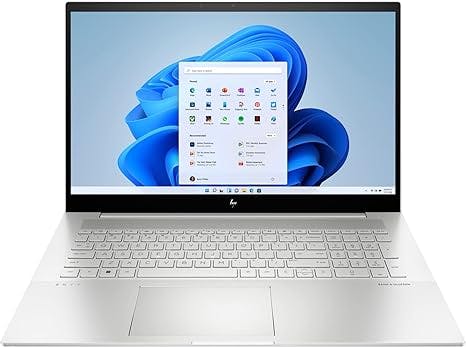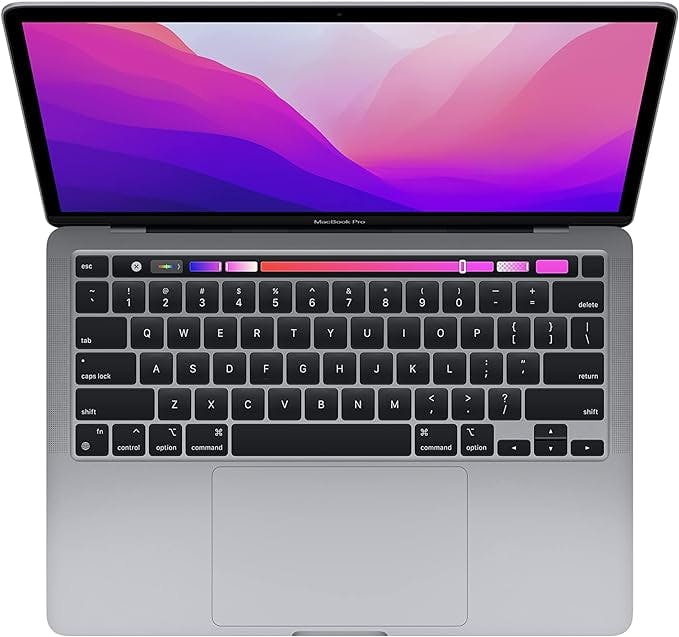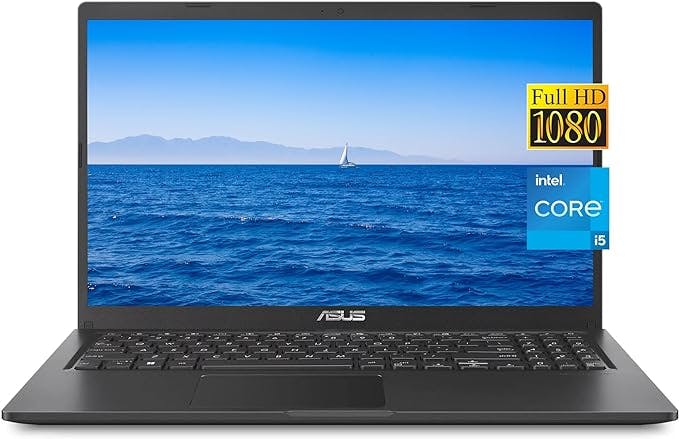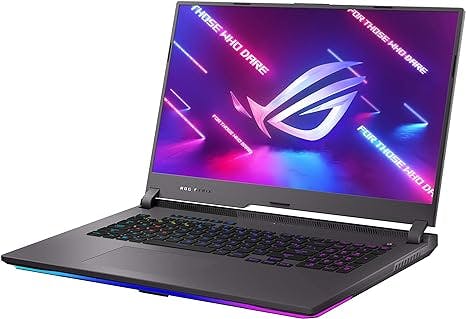Best Computer for Data Analysts in 2023
Looking for the perfect computer to suit your data analysis needs? Dive into this comprehensive guide to explore top picks, hardware specs, and expert tips for 2023.
Hey there, tech enthusiasts and data wizards! If you're here, you're probably wondering what the best computer for a data analyst is in 2023, right? Well, you're in luck because we're diving into this topic, headfirst! Data analysis has exploded in sectors ranging from healthcare to e-commerce. Now, more than ever, a sturdy and efficient computer can be your best friend in this data-driven world.
Importance of the right tools for data analysis
Let's start with a simple truth: not all computers are created equal. It's like comparing apples and oranges—or more aptly, a sleek sports car to a dependable minivan. Both get the job done, but one does it with more flair and speed. Your computer is your toolbox in the realm of data analytics. Choose the wrong set of tools, and you're looking at longer hours, frequent crashes, and generally, a trip to frustration city.
Key hardware considerations for data analysts
Before we jump into specific computer models, let's unpack the mystery box of hardware specs. What should you be looking for? If these terms sound like alien language to you, don't worry, we're breaking it down.
CPU
Think of the CPU as the brain of your computer. You wouldn't want a sluggish brain running complex algorithms, would you? For data analysts, a robust CPU is essential for handling multitasking and computational tasks. Are you someone who loves to keep dozens of tabs open while running your Python scripts? Then don't skimp on the CPU!
RAM
You know that feeling when you're juggling too many things at once and suddenly forget what you're doing? That's your brain running out of RAM. A computer is no different. RAM is where your computer stores data that it's currently working with. You'll need ample RAM to manage large datasets and perform complex analyses without a hitch.
Storage
Should you go with HDD or SSD? Imagine you're in a library. An HDD would be like a librarian who walks to fetch the book you requested. An SSD, on the other hand, is like a librarian who runs a sprint to get it. SSDs offer quicker data retrieval, which means faster data analysis.
Graphics card
Do you need a killer graphics card? Maybe, maybe not. Unless you're diving into heavy data visualization or gaming on the side, a moderate graphics card should suffice.
Operating systems
The classic debate: Windows, macOS, or Linux? Windows and macOS are generally more user-friendly, but Linux is a darling for those who want more control and are comfortable with command-line interfaces. Your choice here depends on your comfort level and specific software needs.
Top 5 computers for data analysts in 2023
Alright, let's get down to brass tacks. Here are some of the best computers tailored to the needs of data analysts.
Let's dive right into the top-tier computers that are ideal for data analysts this year. These have been selected based on their performance, features, and compatibility with data analytics tools.
HP Envy 17T

Specifications
- Processor: 10th Gen Intel i7-1065G7 processor
- RAM: 16 GB
- Storage: 1 TB SSD
- GPU: NVIDIA GeForce 4GB GDDR5
- Display: 17.3″ Full HD IPS
- Operating System: Windows 11
Pros and Cons
- Pros: High-speed performance, ample storage, large display, good battery life (15 hours)
- Cons: Might be on the bulkier side due to the larger display
Pricing: $2300-$2600
Apple MacBook Pro 13.3" with Retina Display

Specifications
- Processor: Apple M1 Chip,8-core CPU
- RAM: 8 GB
- Storage: 256 GB SSD
- GPU: 8-Core GPU
- Display: 13.3" Retina Display
- Operating System: IOS
Pros and Cons
- Pros: Seamless integration with other Apple products, robust build quality, good battery life (18 hours)
- Cons: Limited storage compared to other options, less RAM
Pricing: $1800-$2200
ASUS VivoBook 15

Specifications
- Processor: AMD Ryzen 7 5700U processor
- RAM: 36 GB
- Storage: 1 TB SSD
- GPU: AMD Radeon
- Display: 15.6′′ Full HD
- Operating System: Windows 11
Pros and Cons
- Pros: High RAM capacity, versatile with good battery life (12 hours), suitable for large datasets
- Cons: Might lack in GPU performance compared to gaming models
Pricing: $1400-$1800
ASUS ROG Strix G17 (Gaming Laptop)

Specifications
- Processor: AMD Ryzen 7 4800H 8-Core processor
- RAM: 16 GB
- Storage: 1 TB SSD
- GPU: NVIDIA GeForce RTX 3060 6GB GDDR6
- Display: 15.6′′ Full HD
- Operating System: Windows 11
Pros and Cons
- Pros: Potent GPU for data visualization, high-speed performance
- Cons: Less battery life (6 hours), might be overkill for some users
Pricing: $2000-$2400
Lenovo Thinkpad P53s

Specifications
- Processor: 8th Gen Intel 4-Core i7-8565U
- RAM: 16 GB
- Storage: 512 GB SSD
- GPU: NVIDIA Quadro P520 2GB GDDR5 Integrated Graphics
- Display: 15.6′′ Full HD
- Operating System: Windows 11
Pros and Cons
- Pros: Excellent battery life (14 hours), reliable brand, good for multitasking
- Cons: Older generation CPU
Pricing: $1100-$1400
These are the top 5 computers for data analysts in 2023, chosen for their performance, compatibility, and overall user reviews. Remember to always cross-check with the latest reviews and updates before making a purchase.
Special mention: Custom-built PCs
Ever thought about building your own computer? It's like cooking a meal from scratch—you get to control what goes in it. Custom-built PCs allow you to tailor your machine to your exact needs, and often for a better price.
Other essential tools and software for data analysts
Besides your computer, don't forget about other gear that could make your life easier. How about a second monitor for added screen space? Or specialized data analytics software like Tableau or RStudio? These tools can be game-changers.
Data Security
We can't wrap up without discussing the elephant in the room—data security. Think of it this way: your computer is your castle, and the data you're working with is the treasure inside. You wouldn't want robbers to waltz in, right? Whether you're working with sensitive corporate data or public datasets, security shouldn't be an afterthought.
Look for computers with built-in security features, and maybe invest in some good antivirus software while you're at it.
Productivity Hacks
If you're like me, you love squeezing out every drop of efficiency from your setup. Little things can make a big difference, like keyboard shortcuts or organizing your files in a way that makes sense to you. How about script automation? Being able to run a series of tasks with a single click can feel like you've just discovered a superpower.
Future-proofing your setup
Here's a word to the wise: technology evolves at a breakneck speed. You might buy the latest and greatest machine today, only to find it outdated in a couple of years. When choosing a computer, think about its upgradeability. Can you add more RAM later? How about upgrading the storage? Future-proofing might cost you a bit more upfront, but it'll save you from needing to buy a new computer sooner than you'd like.
Additional considerations: Cloud Computing and Virtual Machines
Wait, hold up! Before you go, let's talk about another couple of options that could potentially save you some cash and offer flexibility: cloud computing and virtual machines.
Ever thought of doing your data analysis in the cloud? Companies like AWS, Azure, and Google Cloud offer powerful computing resources that you can rent. This means you could technically do heavy lifting on a modest machine while tapping into the cloud for the grunt work. It's like having a second pair of strong arms when you're trying to lift something heavy.
What about virtual machines? A VM lets you run another operating system within your existing one. Why should you care? Well, imagine you're a Windows person but need to run some Linux-specific software for your data analysis. A VM would let you do that without the hassle of partitioning your hard drive or—God forbid—buying a second computer.
Last words and final thoughts
Whew! That was a lot to digest, wasn't it? Selecting the best computer for a data analyst is no small feat. It's a blend of understanding what you truly need and what bells and whistles are just nice to have. Keep in mind your primary needs: computing power for the tasks you'll perform most often, enough storage to house your data, and perhaps portability if you're a digital nomad or simply like the change of scenery from the coffee shop to your home office.
Remember, this computer is your sidekick in your data analytics journey. It's the Robin to your Batman, the Watson to your Sherlock. So choose wisely, my friends.
So, what's it going to be? Are you all set to make your purchase, or do you need to do a bit more soul-searching (or spec-searching)? Either way, I hope this guide helps you find your perfect computing match. Now go on, get out there and crunch some numbers!
And there you have it! Your comprehensive guide to picking the best computer for a data analyst in 2023. Let us know in the comments what you ended up choosing. Until next time, keep analyzing and stay curious!
Frequently asked questions
Similar Guides
Join millions of Data Experts
- The ratio of hired Data Analysts is expected to grow by 25% from 2020 to 2030 (Bureau of Labor & Statistics).
- 1/4
- Data Analyst is and will be one of the most in-demand jobs for the decade to come.
- #1
- 16% of all US jobs will be replaced by AI and Machine Learning by 2030 (Forrester).
- 16%